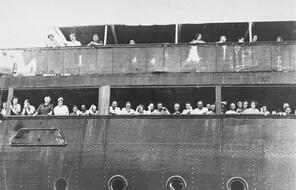Breadcrumb
Teaching The Children of Willesden Lane: Introducing the Universe of Obligation, High School
At a Glance
Language
English — USSubject
- History
- Social Studies
- The Holocaust
Teaching The Children of Willesden Lane: Introducing the Universe of Obligation, High School
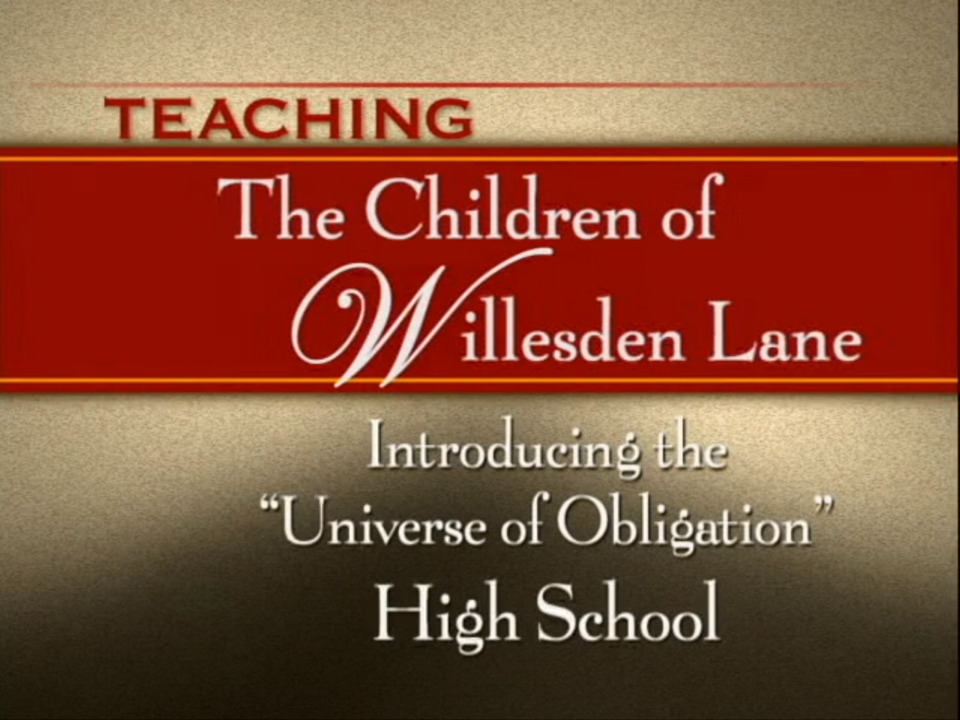
[MUSIC PLAYING]
Today I'm going to introduce the concept of the universe of obligation to my students, which is about the hierarchy of caring. This is a very important concept in The Children of Willesden Lane and in the study of the Holocaust, because it's about choices and about choices of who people will help and who they won't help.
Today we're going to talk about the idea of universe of obligation. This concept was created by a woman by the name of Helen Fein. She defines it as the circle of individuals and groups toward whom obligations are owed, to whom rules apply, and whose injuries call for amends, OK?
What I'd like to do is, before we continue on this concept, I want you to take out your homework from last night. What were we supposed to do.
We were supposed to write about a time when we saw something, and we did nothing.
OK. I would like you to share with the person behind you what was the event that happened and then share why you did nothing, OK? So the why is going to be important to our discussion afterwards, but I want you to share the events with each other as well. OK?
I saw some kids stealing school supplies. And I actually thought about telling the teacher but then I just didn't, because I don't know the kids' names. And what was I going to do? I was like, oh, I saw some kids stealing, and the teacher would think I'm an idiot because I didn't know who stole it.
Sometimes it's like you can't just butt into everything.
Yeah.
You know, it's like--
You think you were scared? Because I was scared. I didn't want to, tell confess what I did so I wouldn't get in trouble. I didn't want to get into that conversation. Same thing with you?
Yeah, same thing.
OK. I'm not going to ask you to share what the events were. And I did speak to a few of you. And some of you were a little worried about your reason. So let's talk about those reasons why you didn't act.
I didn't act because I was trying to protect myself.
Other priorities.
Other priorities, OK.
Not wanting to be embarrassed in front of your friends. Fear of embarrassment.
Your friends would judge you because.
OK, judgment.
The person was my friend so I couldn't accuse them.
OK. OK, so these reasons are very legitimate right, OK? Trent, you said you had other priorities, right? How did you feel as you moved away from the situation.
I felt really bad after just leaving the person because I could have helped him in some way. I could have called an ambulance or help him go home, but I just said I'll forget him. I have other things to do. So I just left.
OK. Did anybody else have some feeling of remorse?
This would happen every day, so every day I would wish that I could make it stop. I wish that I could do something, but no one would have listened to me, so I didn't. So I felt really bad.
What I wanted them to see is that sometimes they won't reach out of their universe to help others because they're afraid for their own safety or protection. So I wanted them to see that there were reasons, legitimate reasons, that they have in their everyday lives. So that when we later on look at situations within the Holocaust and in The Children of Willesden Lane, that we can see that there were reasons why people acted. Maybe out of fear, or their own safety, or that their friends won't think they're cool anymore.
Let's think about our own universe of obligation. How have these events-- have they had any impact on how you define who is in your universe of obligation, who you have obligations towards, who the rules apply to, and injuries that call for amends? Let's just, for a moment, write down a universe for yourself. You should do it in the levels of important-- who are the most important in your universe of obligation, not so important, and not at all important.
I asked them to create their own universe of obligation so that they could try to determine who they felt were the most important people in their lives, rather than me telling it who's supposed to be in the center. Let them understand it for themselves.
Let's talk about who you guys put in your universe of obligation by grouping.
I put my family because they're the one I love the most and care about the most, so I put them first.
OK. And who did you have on the-- how were the level separated for you?
And then I put my friends, my best friends.
Friends here in the second level.
Yeah. And then my pets.
Here.
Yeah.
OK.
And then I have my neighbors and everyone else.
Mind is kind of the same. But instead of putting family as my first, I put God.
OK.
And then next to friends, I put my dog.
You put your dog. OK.
Because don't they say that a dog is a best man's friend?
Man's best friend? How many of you agree with Cindy that we should move the pets closer to the inner circle?
Your pets are like your family. They live with you. You love them. You give them food. It's like your baby.
I don't think so because let's say something happens to your dog and at the same time something happens to your sibling, who would look for first? Your sister or brother or your dog?
I think it really depends on the individual. There's some people that their dog means more to them because their family might not be always there for them.
Everybody's universe of obligation is going to be different, right? I like to see them talk to each other about how there's differences. Students come from all different experiences, and they bring that diversity to the classroom and the classroom discussions.
The number one rule that I set at the beginning is that we have to be able to listen and respect what other people say. You can disagree with what they say as long as they have the right to say it.
I put myself on the second level because sometimes-- I see that as selfish, like doing things first to please yourself and then to please others. I think that people that help you, you should help them too. You should think about people before you, the people close to you, like your family.
I disagree with Agnes because I would also put myself in the middle because not all the time, your family and your friends is going to be there for you because they have their own problems to do and stuff. So you have to put yourself in the middle.
Last year, I used to have a friend who was always there for me, and I would put her in the middle at that time. But then as time changes, we grew apart because she likes some other things and I like other things. So then now she becomes into other universal thing like the second level instead of the center.
I think the universal obligation, we never thought about it. But in our conscience, it does exist for every single person, whether a child or an older person. And it changes. It keeps on changing as we grow, as time passes by.
And that's how we take decisions, and that's how we judge people. I think it all leads to judging people. That's how I think it affects our decisions.
Is there any event in our history as a community or nation that may have changed our universe of obligation?
There was the Katrina incident, and everybody in the United States, at first, they don't care about the other states or anything. But until a natural disaster happens, you say, oh, we care about them. We need to help them. And I think something drastic happens, people tend to change.
OK. Anybody else?
Before September 11, 2001, the United States and all the states in it used to, I think, stay a little isolated from each other. Each one of them was concerned just within whatever their boundaries and their people were involved in. But after it, I think this nation became more united and more concerned for each other. So whether it be like a small thing or a big thing, it's still, get united and work towards it, solve that problem.
OK. Now, the book that we're about to study is The Children of Willesden Lane. And the case study that we're going to study is the Holocaust. And it's going to be very much related to this universe of obligation that if we could only see our family and our friends at the center and we live in Germany in 1933 onwards to '45, what is the danger of just your family, yourself, and your friends at the center of your universe? What happens to the people around you?
I think what would happen was that you would only be caring with your inner circle. You would care only about your friends and your family, and you wouldn't care about another family and their friends even though they're going through the same thing that you are.
OK. Let's look at our reasons why we did nothing, right? And think about who's in our universe of obligation and what would keep us from reaching outside our inner circle. Are there dangers to not making your inner circle broader?
According to that list of why, it shows that the main person in that circle of the universe of obligation, it's only us. We think about our own safety and that's why we don't take action against something that we don't like. And we're scared. Fear stops us from really taking action.
Was there group on September 11 that maybe broadened their universe of obligation? Who went inside to try to help?
Firemen and the policemen and some of the people that work there actually helped them to get out.
What is the characteristic that firemen and policemen have?
They have to be courageous, and they have to have compassion.
It's not only firemen, policemen. I know they do a lot. It's their job. But on the day of the blackout, my brother, he was stuck in Manhattan with my uncle. So there were these people who picked them up on a van and took them home. So I think people also care a lot.
So if we look at why we choose not to act to overcome some of these reasons, we're going to need to be brave, and we might need to do things that we may not normally do, right? We will see opportunities of that as we read The Children of Willesden Lane and we look at issues that come up in the Holocaust.
What I really want the students to get from The Children of Willesden Lane is this idea that one person can make a difference, that if one person has enough courage to reach outside of their circle, their universe of obligation, that they can make not only a difference in their own lives, but in the lives of others.
[MUSIC PLAYING]
Teaching The Children of Willesden Lane: Introducing the Universe of Obligation, High School
You might also be interested in…
Dismantling Democracy
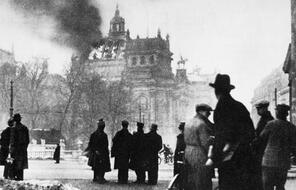
Do You Take the Oath?
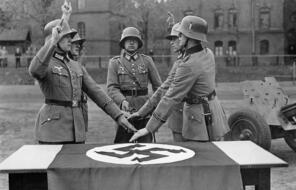
European Jewish Life before World War II
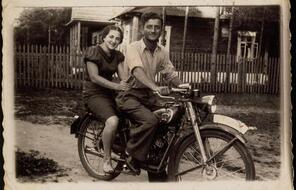
Exploring Identity

The Holocaust: Bearing Witness
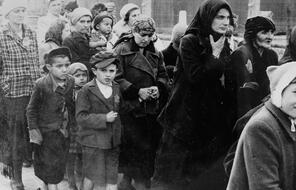
How Should We Remember?
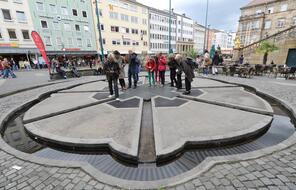
Introducing The Unit
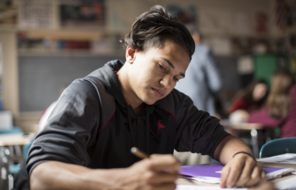
The Holocaust: The Range of Responses
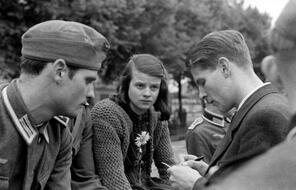
Kristallnacht
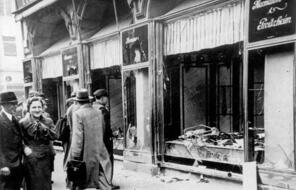
Laws and the National Community
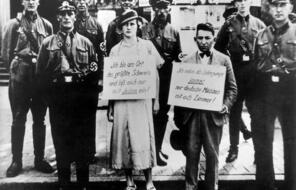
The Power of Propaganda
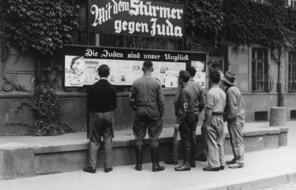
Responding to a Refugee Crisis
